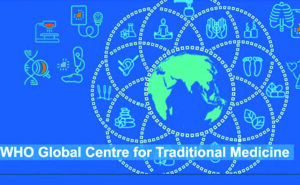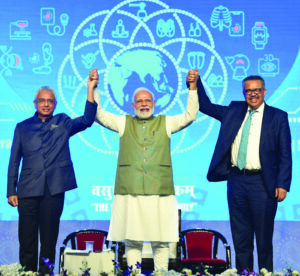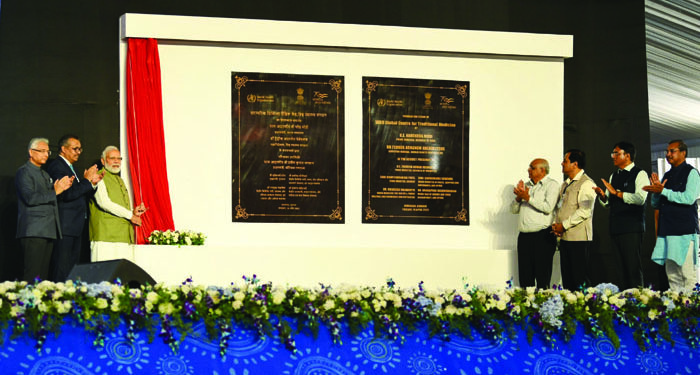JAMNAGAR, APRIL 19

Prime Minister Narendra Modi on Tuesday said the establishment of the WHO Global Centre for Traditional Medicine (GCTM) at Jamnagar in Gujarat will usher in an age of traditional medicine globally.
Modi, along with the World Health Organization’s Director-General Dr Tredos Ghebreyesus and Mauritius Prime Minister Pravind Jugnauth, laid the foundation stone for the centre.
“The centre will start the age of traditional medicine in the world in the next 25 years,” Modi said, listing various benefits of traditional medicine.
He also thanked the United Nations for accepting India’s proposal and declaring 2023 as the International Millet Year.
A big database of traditional medicines from every nation is among the key features of the World Health Organisation’s Global Centre for Traditional Medicine in Gujarat’s Jamnagar.
PM Modi said the database will help in properly documenting traditional medicines and act as a global repository.
This facility, supported by an investment of $250 million from India, aims to harness the potential of traditional medicine from across the world through modern science and technology to improve health.
“The WHO Global Centre for Traditional Medicine in Jamnagar aims to bring ancient wisdom and modern science together,” PM Modi said. “India’s traditional medicine system is not limited to treatment. It is a holistic science of life,” he said.

According to WHO, some 80 percent of the world’s population is estimated to use traditional medicine. To date, 170 of the 194 WHO member states have reported the use of traditional medicine, and their governments have asked for WHO’s support in creating a body of reliable evidence and data on traditional medicine practices and products. The Gujarat facility would be of great help towards this goal.
The term “traditional medicine” describes the total sum of the knowledge, skills and practices indigenous and different cultures have used over time to maintain health and prevent, diagnose and treat physical and mental illness. Its reach encompasses ancient practices such as acupuncture, ayurvedic medicine and herbal mixtures as well as modern medicines, the WHO said.
“But today, national health systems and strategies do not yet fully integrate the millions of traditional medicine workers, accredited courses, health facilities, and health expenditures,” the global health body said.
Some 40 percent of approved pharmaceutical products in use today are derived from natural substances, highlighting the vital importance of conserving biodiversity and sustainability.












